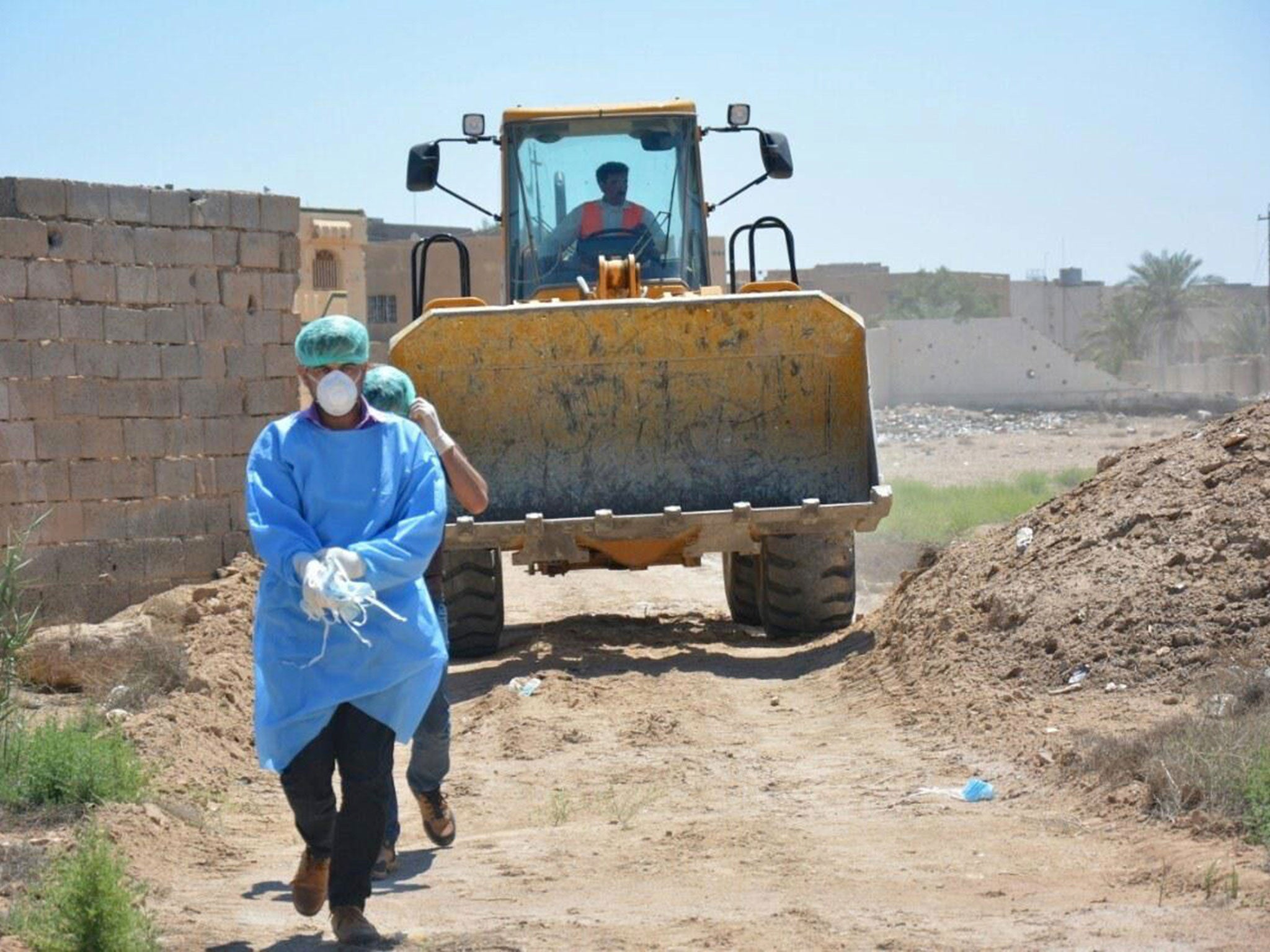Mass graves discovered in former Isis-controlled Iraqi city of Ramadi
Women, children and the bodies of men in civilian clothes were found in the two graves inside the city's football stadium

Mass graves containing around 40 people, including women and children, have been discovered in the Iraqi city of Ramadi, officials have said.
The bodies are believed to be victims of Islamist extremist group Isis, who controlled the city until December 2015.
Officials said Isis militants who were captured and arrested after Iraqi forces drove the extremists from the city, led authorities to the site of the mass graves inside the city's football stadium.
In addition to women and children, the bodies of men in civilian clothes were found in the two graves.
There have been many instances of mass graves being uncovered in territory liberated from Isis control in Iraq and Syria. Thousands of people have been killed in summary and extrajudicial killings by the militants, and the graves have been a dark testimony to the group's brutality.
In June 2014, some 1,700 Iraqi soldiers were captured and then killed by Isis militants when they overran Saddam Hussein's hometown of Tikrit. At the time, the soldiers were trying to flee from Camp Speicher, a nearby army base where they were deployed. Mass graves filled with hundreds of Iraqi soldiers' bodies were found after the city was liberated in April 2015.
In December, the UN Human Rights Office in Iraq said it received reports of 16 mass graves discovered near the town of Sinjar after it was liberated from Isis the previous month.
Among the first mass graves uncovered in Sinjar - within days of Isis forces being pushed out of the town - was one near the centreof the town that has been estimated to contain the bodies of 78 elderly women. In another, about 10 miles outside of the town was found to contain between 50 to 60 bodies of men, women and children.
The UN uses the term mass grave to refer to a location where three or more victims of what the world body defines as extra-judicial, summary or arbitrary executions are buried - not those who have been killed in combat, attacks such as bombings or armed confrontation.
Associated Press contributed to this report
Join our commenting forum
Join thought-provoking conversations, follow other Independent readers and see their replies
Comments
Bookmark popover
Removed from bookmarks